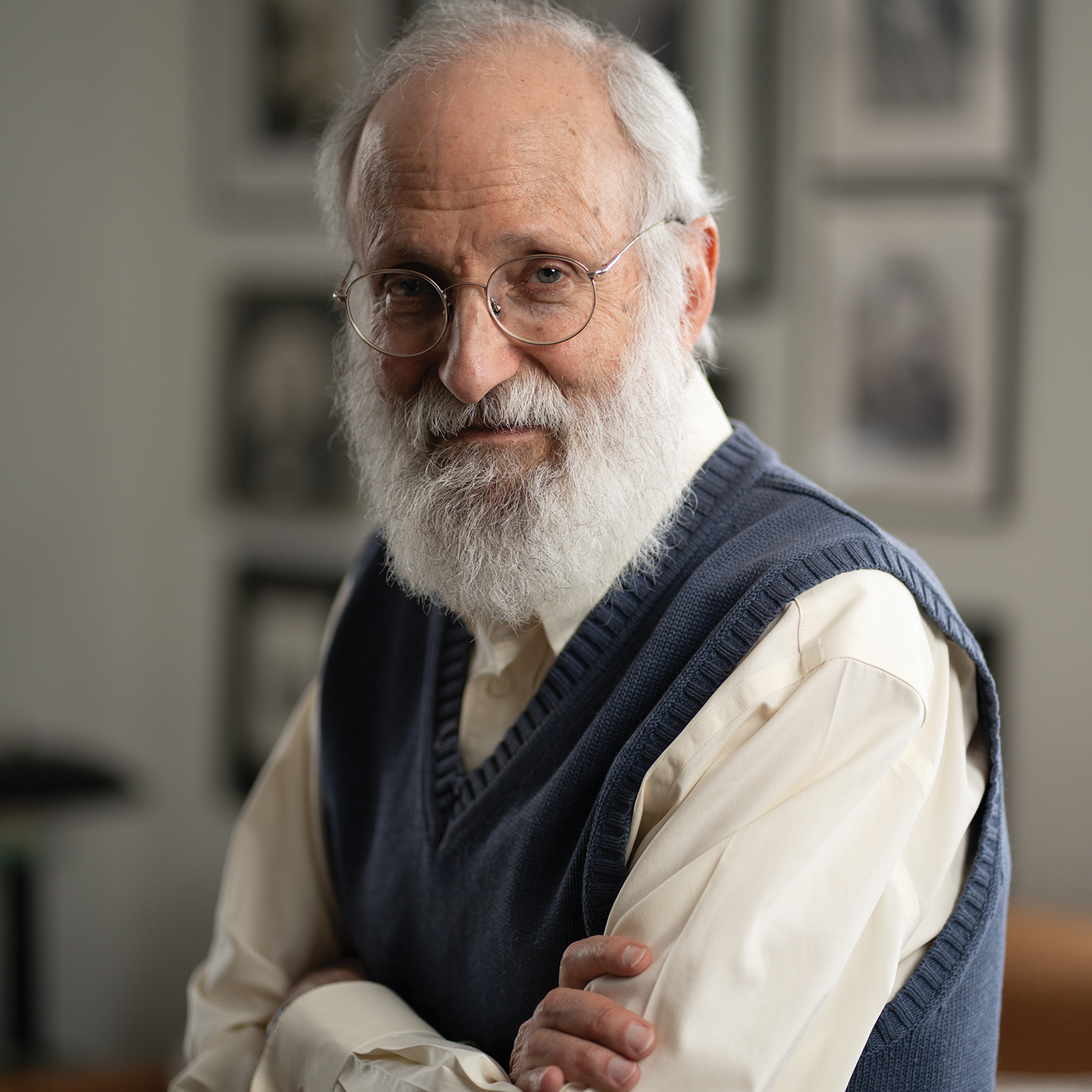
Research & Discovery
Are mental illnesses brain diseases?
Psychiatric geneticist Kenneth Kendler, M.D., weighs in on an age-old question.
When Kenneth Kendler, M.D., was working toward his medical degree at Stanford and completing his residency at Yale in the 1970s, the field of psychiatry was split into two factions: the psychoanalysts, descendants of Sigmund Freud, who focused on the mind and prioritized psychotherapy, and the biomedical psychiatrists, who had surfaced earlier that decade and viewed mental illness through the lens of biology, treating patients primarily through medication.
“In the 1940s and ’50s, the chairs of all the major departments in the U.S. were psychoanalysts,” says Kendler, the Rachel Brown Banks Distinguished Professor of Psychiatry at VCU. But “about half my supervisors [at Yale] were biological psychiatrists. They were all into dopamine and serotonin and antidepressants and antipsychotics. And they spent a lot of their time saying, ‘The psychoanalysts are full of s---. Don’t listen to them. All these theories are unscientific.’
“And then, of course, I had psychoanalytic supervisors. They would spend most of their time telling me how the biological psychiatrists didn’t know anything about patients and couldn’t talk to patients.”
Kendler, 74, majored in biology at UC Santa Cruz and felt frustrated by the psychoanalysts, who wanted patients to spend years in psychotherapy. But he also majored in religious studies and has studied the Hebrew Bible extensively. He didn’t feel the biomedical approach did enough to understand the richness of human experience.
Influenced by both groups but uncomfortable with their singular perspectives, Kendler built a more nuanced point of view: Psychiatrists are more effective when they pay attention to their patients’ minds and brains.
It’s a late Wednesday afternoon in December, and Kendler is speaking on Zoom. The weather is unseasonably warm, which means he got to sneak in a quick bike ride before this chat. He’s working from home, but several days a week, Kendler is on VCU’s MCV Campus, where he is director of the Virginia Institute for Psychiatric and Behavioral Genetics.
He’s also one of the most cited psychiatric researchers in the world, and he was recently named a fellow of the American Association for the Advancement of Science, an honor bestowed by the world’s largest multidisciplinary scientific society on influential scholars and innovators like Thomas Edison and W.E.B. Du Bois. In the past five decades, he’s led 12 major studies in the U.S. and abroad and has authored more than 1,200 journal articles about psychiatric disorders, particularly depression, substance use disorder and schizophrenia.

Kendler in his office. He joined the VCU School of Medicine 42 years ago.
Today, he’s chatting about something a bit more philosophical: a “viewpoint” essay he wrote in the April 2024 issue of JAMA Psychiatry. The essay is short, but it contemplates a big question that’s plagued psychiatrists since the field emerged 200 years ago: Are psychiatric disorders brain diseases?
The answer, Kendler writes in JAMA: Yes, at least for schizophrenia. But it’s complicated. To understand why, we need a quick history lesson.
Over the past few thousand years, Western civilization has tried to explain the origins of mental illness in disparate ways. Potential causes have included angry gods, witches, demonic spirits, and an imbalance of bodily fluids (“humors”) thought to be responsible for personal temperament.
In the Christian tradition, which dominated Western thinking for much of the past 2,000 years, the soul — a term often used interchangeably with “mind” — was thought to be perfect because it was created by God. A disordered mind was thus inconceivable.
The Enlightenment brought more secular ideas about human nature, including the idea of the mind existing in the space between the body and the soul. That theory, along with the creation of asylums, where doctors could study and treat a lot of people with mental illness in one place, led to the development of psychiatry; medical, rather than religious, authorities began to provide care for people with mental illness.
There was still, however, confusion about what causes mental illness.
In an influential textbook, 19th-century German psychiatrist and neurologist Wilhelm Griesinger declared that psychiatric diseases originate in the brain. Psychiatrists assumed that meant the brains of people with mental illness would exhibit recognizable physical differences. “They began opening up the brains of patients with schizophrenia [postmortem], and they couldn’t find anything consistent the matter with their brains,” Kendler says. “It was very upsetting to them.”
Around that time, disorders associated with physical changes to the brain — a stroke or traumatic brain injury, for instance — were being treated by neurologists, reinforcing psychiatry’s tenuous position in medicine. While other medical specialists treat injury and disease associated with physical changes to an organ or system, psychiatrists study and treat disorders whose symptoms are emotional and behavioral. They explore some of the “fundamental questions about what it means to be a human being,” Kendler says.
In his JAMA essay, Kendler, working with the advantages of modern genetics, offers a novel take on Griesinger’s theory by focusing on “risk genes,” which increase the likelihood of developing an illness.
Kendler has studied genetic risk factors of psychiatric disorders for almost 50 years. He’s one of four principal investigators on the world’s largest study of genetic variants that affect the risk of developing bipolar illness, and he’s writing a book on the history of psychiatric genetics.
In his viewpoint essay, he cites a 2022 study from the Psychiatric Genomic Consortium Schizophrenia Working Group, which includes more than 500 researchers from more than 50 countries. That study found that the majority of risk genes for schizophrenia are expressed in brain tissue.
“I knew of the studies, and I had presented them and taught them,” Kendler says. “I just sort of had one of those OMG moments of thinking this really actually begins to address this kind of foundational question, at least in a potentially small but reasonably definitive way, about the nature of psychiatric illness.”
The approach, in other words, provides a data point to support the idea that schizophrenia is a brain disease. It’s a “small peg in a giant historical wall,” Kendler says.
It also has broader implications.
“It is an unusual feature of our culture in which to take a human condition of suffering and [to] link it to something biological gives it legitimacy,” Kendler says. This study shows that “it’s no longer debatable to say that schizophrenia is just in your mind, which is often meant in a derogatory manner, that it’s not real and that a person should just snap out of it and pull themselves up by their bootstraps.”
“This issue about whether disorders are at least partly linked in the brain is not only scientific, it’s not only related to religious themes and the nature of what human mentation is, but it has all these emotional and, indeed, even financial implications in the way we organize our health care. That I could just write a little essay pointing out this one development and its implications was something I couldn’t resist.”
Kendler has built a nuanced point of view: that psychiatrists are more effective when they pay attention to their patients’ minds and brains.
Kendler acknowledges that identifying the location of risk genes won’t characterize all conditions as brain diseases. Some of the risk genes for alcohol use disorder, for instance, are expressed primarily in liver tissue.
This concession is important. It’s an acknowledgement that psychiatry is still a relatively young field that has yet to resolve the complexities of the human mind and brain. Peter Zachar, Ph.D., a professor of psychology at Auburn University at Montgomery and co-editor of “Toward a Philosophical Approach To Psychiatry: The Writings of Kenneth Kendler,” says that in the 1970s, the emerging branch of biomedical psychiatrists expected to soon find the biological basis of schizophrenia and depression and win Nobel Prizes.
“But of course, the Nobel Prizes didn’t come,” he says. “One of the reasons they didn’t come is because there was an underestimation about how complex psychiatric disorders are, how complex neuroscience is and how complex genetics is.”
Cultural anthropologist Tanya Luhrmann, Ph.D., a Stanford professor who wrote “Of Two Minds: the Growing Disorder in American Psychiatry” in 2000, saw the limitations of a field split between psychoanalysts and biomedical psychiatrists after spending almost a decade interviewing and observing clinicians and patients.
“It seemed pretty clear to me that a purely psychoanalytic approach didn’t make any sense,” Luhrmann says. “The purely biomedical approach was also limited, certainly in intervention, because often there isn’t any good biomedical intervention apart from medication, and the medication doesn’t always work.
“And psychotherapy is probably equally as effective as medication for relatively mild depression. But even for schizophrenia, it seems pretty clear that somebody caring to talk to and interact with can be quite helpful.”
Kendler becomes impassioned when talking about the treatment of people with psychiatric disorders. That’s likely an outcome of the 25 years he spent as a clinician early in his career but also of his personal experience. His mother had late-onset depression, and his brother developed chronic and debilitating mental illness in his 30s and died young.
Kendler recounts telling a biomedical psychiatrist in the 1980s that he was spending time getting to know a patient with schizophrenia. The response? “‘That’s a waste of time. You might as well work with a broken computer.’
“I was aghast. That’s deeply offensive,” he says. “That’s really the brain reductionist model in its extreme form of ‘I’ll give you pills, but there’s no sense talking to you because you’re just so mentally ill.’”
Kendler says he ends his lessons with medical students by encouraging them to treat patients with respect and compassion.
“It’s your job to care for them and approach them with an open heart.”
